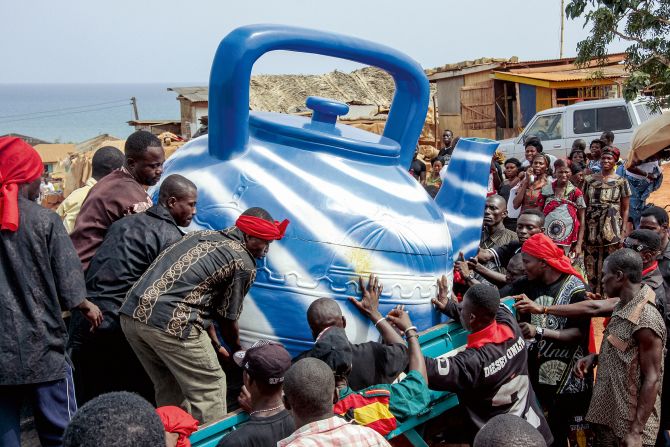
A traditional priest and fisherman buried in Ghana’s Central Region in 2009. Academic Regula Tschumi has spent decades documenting colorful funerals across Ghana, and has compiled her images in new photography book “Buried in Style: Artistic Coffins and Funerary Culture in Ghana.” Scroll through the gallery to learn more.
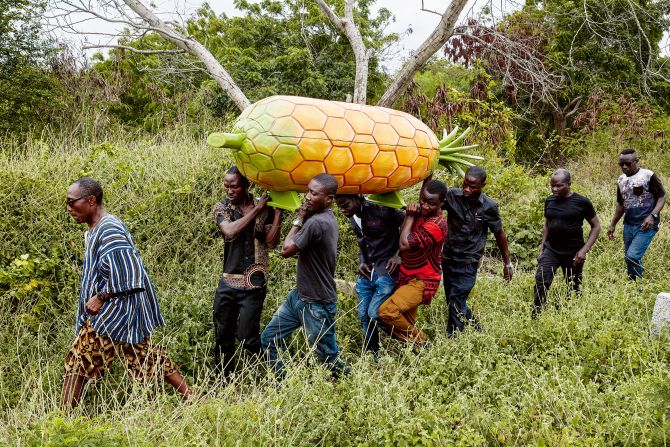
A pineapple seller is carried to her grave in a pineapple-shaped coffin in the Greater Accra region in 2019. According to Tschumi it is the family of the deceased who typically decide the shape of the coffin.
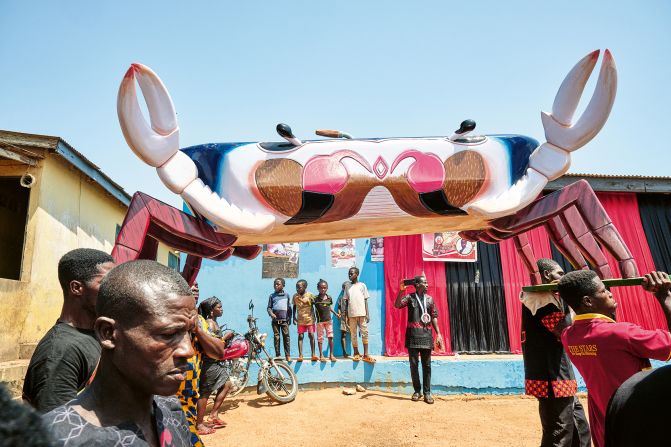
Caskets were until recently totally handmade, Tschumi told CNN. The artisans who make them usually operate out of small workshops. In the Central Region, a crab-shaped coffin was made for a builder nicknamed “Crab” in 2024.
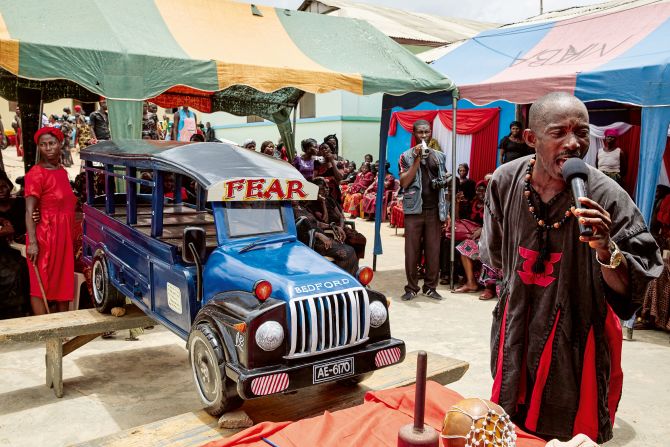
A driver was buried in a replica of his Bedford truck in the Central Region, 2015. Coffin makers operate in a buyer’s market, said Tschumi. Many see selling one of their bespoke designs to Western museums as a major payday, she explained.
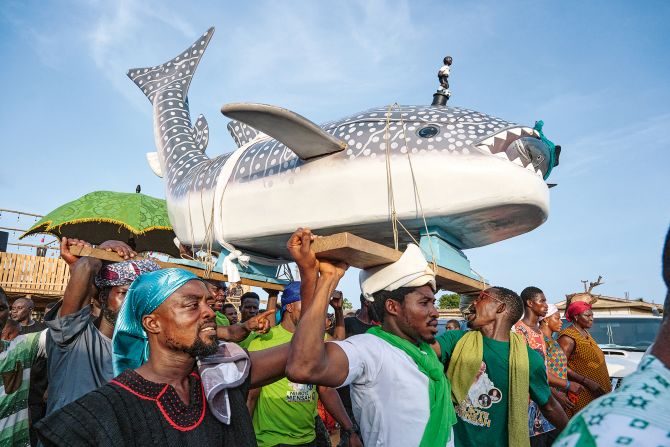
A whale shark coffin was made for a deceased chief in Greater Accra, 2024. The creature is an auspicious symbol, as it is considered to be the largest and strongest shark, according to the photographer.
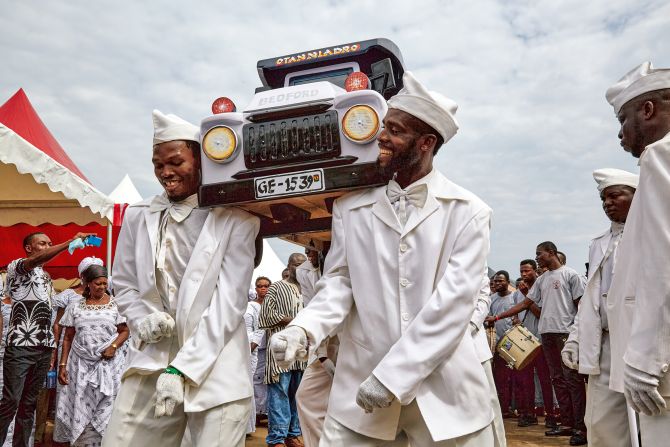
In 2017, a family in the Greater Accra region surprised mourners with a performance from a group of coffin dancers. The troupe danced with the truck-shaped coffin and carried it to the ceremony. Coffin dancing is a relatively new tradition in Ghana, pioneered by undertaker Benjamin Aidoo.
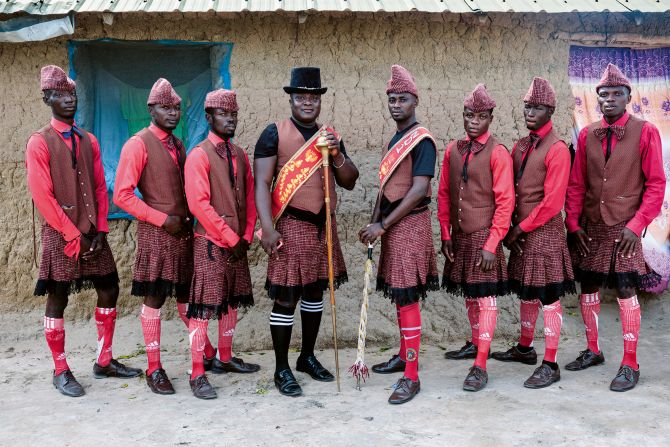
Benjamin Aidoo (center, in black hat) poses alongside some of his dancers in their “Scottish Red” uniform in 2022. Tschumi calls Aidoo one of her best friends, and is a key figure in opening doors for her to document Ghana’s unique funeral traditions.
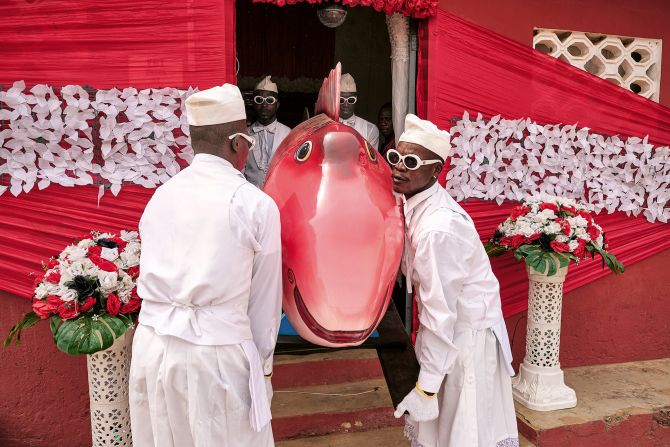
Aidoo’s company Nana Otafrija (pictured) carries out multiple duties on the day of the funeral and the night before. This funeral, in Greater Accra in 2024, was for a fishmonger. The tail of the fish coffin was too long for the grave, said Tschumi, and had to be sawn off.
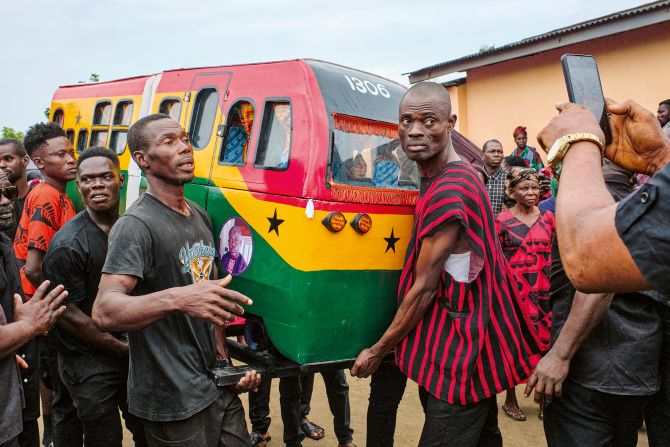
A coffin shaped like the carriage of a railway locomotive – a tradition among deceased employees of the Ghana Railway Company, according to Tschumi. Central Region, 2023.

The night before a funeral, some families will undertake “laying out,” in which the deceased is displayed, with mourners coming to pay their respects. The deceased may be lying down, like at this 2024 ceremony in Greater Accra, although they may be sat upright. Undertakers sometimes change the poses of the deceased during the night, said Tschumi.
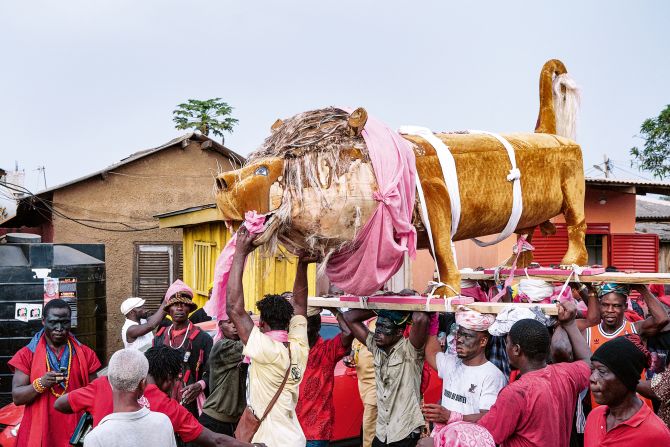
The funeral of Nii Agbetekor, the supreme traditional military leader of Nungua, in Greater Accra, took place in November 2024 and was especially grand. Read more about the traditions of funerary culture in Ghana.



